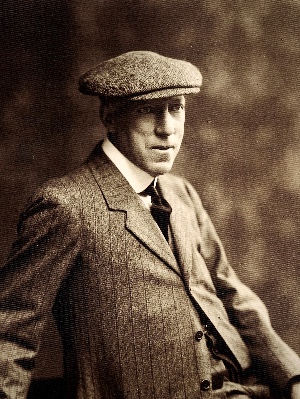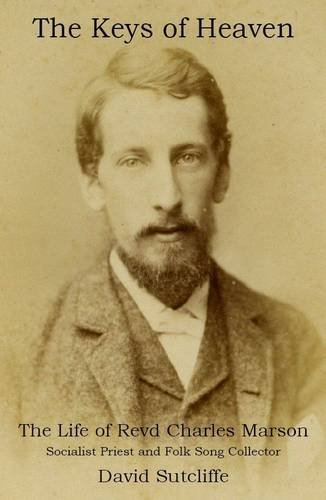Wilkie, Dorette
Also known as: Wilke, Dorette
Dancer
Collection date:
Area: London
Dorette Wilkie (Wilke) (1867-1930): Miss Dorette Wilkie was the Principal of the Physical Training Department for Women* at the South Western Polytechnic (later called the Chelsea Physical Training College). She set up the College in 1898 and her Department trained young women to become PT teachers - among her pupils were Helen Kennedy, Peggy Walsh and Marjory Sinclair. Maud and Helen Karpeles attended Sharp’s evening classes in morris dancing at the Polytechnic too. There were various other departments, of course at the Polytechnic – Claud Wright and James Paterson were enrolled in the men’s Physical Training programme and they became morris dancers. Finally Douglas Kennedy enrolled in the Science Department there.
Dorette Wilke was born at Stendal, Magdeburg, Prussia on 14/6/1867, daughter of Friedrich Wilke, a cork merchant (a Polish refugee), and his wife Dorothea. Dorette suffered from a spine condition and came to London aged 18 in 1885, seeking a cure. She attended a 2-year course at the Training School of the Adolf Stempel gymnasium. Not only were her physical difficulties cured but she became a graceful gymnast and an inspiring teacher herself.
She started the Physical Training Department in Manresa Rd, Chelsea with just 6 students but it quickly became a centre for progressive educational ideas. There were 216 students in the first 12 cohorts (1898-1909). The Chelsea course involved practical studies (gymnastics, sports, swimming, dancing); theoretical studies (anatomy, hygiene); and teaching practice in local schools. Successful students could then apply for PT teaching posts in schools etc. A biographical sketch by Ida Webb describes Wilke as ‘talented, vivacious, dynamic, outspoken, wise and generous’**. She became a naturalised British subject in 1908 and changed her name to Wilkie.
She was a keen supporter of the many London Working Girls’ Clubs and her students all had to spend volunteer time at a club, absorbing its aims and joining in activities. Her staff would travel out of London to support work in the provinces – e.g. The Cheltenham Chronicle of 8 Mar 1913 reported that Miss Pribyl of the SW Polytechnic spoke at the Cheltenham Girls’ Club Annual Display (its 8th Year) where 285 girls from 19 clubs performed gymnastics, drills and morris dances. The sense of liberation in terms of costume and freedom of movement for young women would have been enormous and this can be seen in the joyful expressions of the women’s dance team photos taken at the time.
Dorette Wilkie embraced the folk movement, inviting first Florrie Warren from the Esperance Club to give a week’s teaching to her students in Oct/Nov 1907 and then asking Cecil Sharp to lecture on folksong on 31 Jan 1908. Her letter of thanks (CJS1/12/21/6/1) began a fruitful working relationship. Sharp started to visit the college regularly in March 1909 to offer morris dancing tuition and demonstrations. He had already trained a good women’s team to dance before King Edward VII at a charity event on 10 June 1909. When in August 1909 the Board of Education announced the new policy that encouraged the teaching of morris dancing within elementary schools, Sharp was given approval by Miss Wilkie to commence morris dance classes as part of her curriculum in Sept 1909. He also ran evening classes (open to the public), which attracted the Karpeles sisters to start their dancing.
Wilkie and Sharp appeared on the same platforms, first at the Women’s Congress at the Japan-British Exhibition at the White City on Sat 9 July 1910. Guild of Play children (supervised by Mrs Kimmins) danced first, Miss Wilkie spoke of the importance of healthy exercise for girls (20 minutes every day) and Sharp introduced the women’s team from the College who performed several morris dances to his piano accompaniment (Shoreditch Observer 16 July 1910). Between 2-6 August 1910 Dorette Wilkie then attended the International Congress of School Hygiene in Paris (1,600 delegates), during which time Sharp and the Polytechnic women’s team performed morris dances and folk dances on three afternoons (East Anglian Times Tues 9 Aug 1910).
With Miss Wilkie’s support Sharp had the facilities and tuition time to train adult dancers (rather than children). Her graduates then entered the school system and spread the infection of folk dancing. Even into the 1980s (and beyond) Primary School teachers have given children at least the opportunity to try out country dancing. Sharp’s secure base at the Polytechnic, his relentless pursuit of new dances to perform, and his appointment as Director at the Stratford Summer Schools in 1911 restored his fortunes.
Miss Wilkie remained as Principal until her retirement in 1929. She died on 19/1/1930.
*The Dept was later called the Chelsea Physical Training College and it moved to Eastbourne. It is now part of the University of Brighton.
** Ida M Webb The Challenge of Change in Physical Education’ Falmer Press 1999 p13
See also Obituary of Miss Wilkie in Journal of EFDS no.3 (1930) p62

